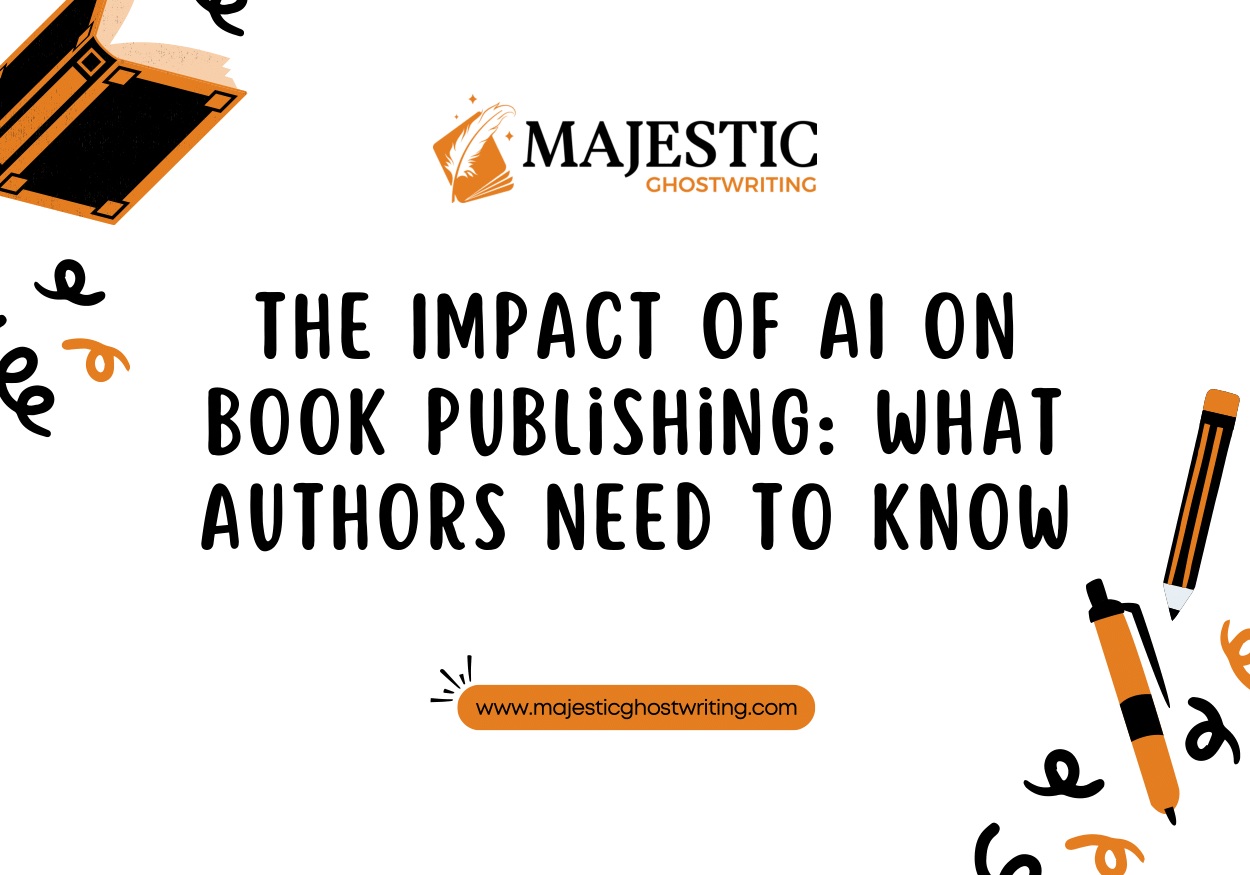As we have entered this fierce era, we see that tech has evolved, and along with everything, book publishing has also been influenced. The emergence of Artificial Intelligence has also impacted book publishing. From being perceived as a futuristic concept it’s now a reality that we all implement and practice in our daily work lives and our daily routine as well. This is another debate about whether it’s helpful or not, but for the authors, the introduction of AI has made nuances even of eBook publishing services simpler, and the advances are rapidly evolving thanks to AI’s influence.
Artificial Intelligence in Writing
In this blog, we’ll dive into how AI impacts book publishing and what authors need to know to stay ahead of the curve utilizing Artificial Intelligence. We’ll talk about the things that AI has reshaped, so without further ado, let’s dive into it:
1. AI in Manuscript Writing and Editing
The biggest influence AI has ever had on the writing industry is book publishing through manuscript writing and editing. Many AI tools, like Grammarly and Hemingway, are now common in the writing world. These AI-generated tools help with grammar, style, and even readability, making the editing process faster and more efficient. But this is not all AI goes beyond just catching typos. It has done more than that, from helping in researching to proofreading; all these tools have made things easier. Some advanced tools can offer suggestions on improving plot structure, character development, and even pacing, helping authors refine their manuscripts before they’re submitted to publishers.
2. Personalized Writing Assistance
Yes, it’s right that AI has offered personalized assistance for authors looking for more than just basic editing, AI-driven writing assistants can provide personalized help. These tools analyze your writing style and offer tailored suggestions based on your unique voice. This can be incredibly useful for maintaining consistency throughout a manuscript or even for developing new ideas. Imagine having a virtual co-author who understands your style and can offer real-time feedback, that’s the power of AI.
3. Enhanced Research Capabilities
Writing requires research, especially for non-fiction writers. AI can expedite this procedure by rapidly sorting through enormous volumes of data and condensing pertinent information. Authors can obtain information more quickly and effectively by using tools like IBM’s Watson, which can analyze data and offer insights. This can be very helpful for writers who have to research difficult subjects or find obscure facts.
4. AI in Book Marketing and Promotion
Promoting a book might be just as difficult as writing it. This is where AI can become a revolutionary. In order to identify possible audiences and recommend the most effective ways to approach them, AI algorithms examine reader data. AI, for example, can assist writers in knowing which social media sites their audience prefers and what kinds of content most interest them. Better sales are anticipated as a result of more focused marketing initiatives.
Additionally, authors can save time and effort by using AI-powered tools to create promotional content, such as social media postings and email newsletters. Certain platforms also provide automatic A/B testing for advertisements, allowing campaigns to be optimized for maximum impact.
5. Predictive Analytics and Sales Forecasting
It can be difficult to predict how a book will do on the market. AI is useful because it offers predictive analytics. Artificial intelligence (AI) techniques can predict a book’s potential sales by examining patterns and consumer behavior. Both publishers and authors can use this information to inform their decisions about pricing, marketing tactics, and even possible follow-ups or spin-offs.
6. AI in Book Design and Formatting
It can be intimidating to design a book cover or format a text for several platforms. AI is making these procedures easier by providing tools for automated formatting and design. These technologies prepare manuscripts in accordance with industry standards and employ algorithms to make visually appealing book covers. They might not be a perfect substitute for experienced designers, but they can be more affordable.
7. Challenges and Ethical Considerations
But along with technology comes there is also ethical considerations as well. While AI offers many assistances, it also presents encounters and authority. For instance, the rise of AI-generated content raises questions about originality and legitimacy. There are authors who need to be aware and watchful of how much they rely on AI tools and ensure that their work remains unique and true to their voice.
Another concern is the issue of data privacy that comes along with AI tools, as they often collect and analyze large amounts of data, which can include sensitive information or any private details. The authors, therefore, should be aware of how their data is being used and must take necessary steps to protect their privacy and security.
8. The Future of AI in Publishing
Let’s now discuss that is in the future of AI in book publishing. It’s promising but yet horrifying, with ongoing advancements likely to bring even more innovations. For instance, AI might soon be able to offer even more advanced writing assistance, predict trends with greater accuracy, or create immersive reading experiences through virtual reality or browse accurately.
For authors, staying updated on AI developments and understanding how they can be used to their full potential can be a key to success in this modern world. Embracing these technologies can help streamline the writing process, enhance marketing efforts, and, ultimately, reach a broader audience.
Conclusion
AI is reshaping the book publishing industry in numerous ways, from manuscript writing and editing to marketing and designing book ghostwriting services. This is a pure land of opportunities for the authors. How are they going to leverage them? This does come with a plethora of challenges. However, by staying informed about AI tools and how they can be leveraged, authors can take advantage of these advancements to enhance their work and navigate the evolving publishing landscape. The key is to balance the use of AI with your unique voice and creativity.


 (855) 524-0054
(855) 524-0054




